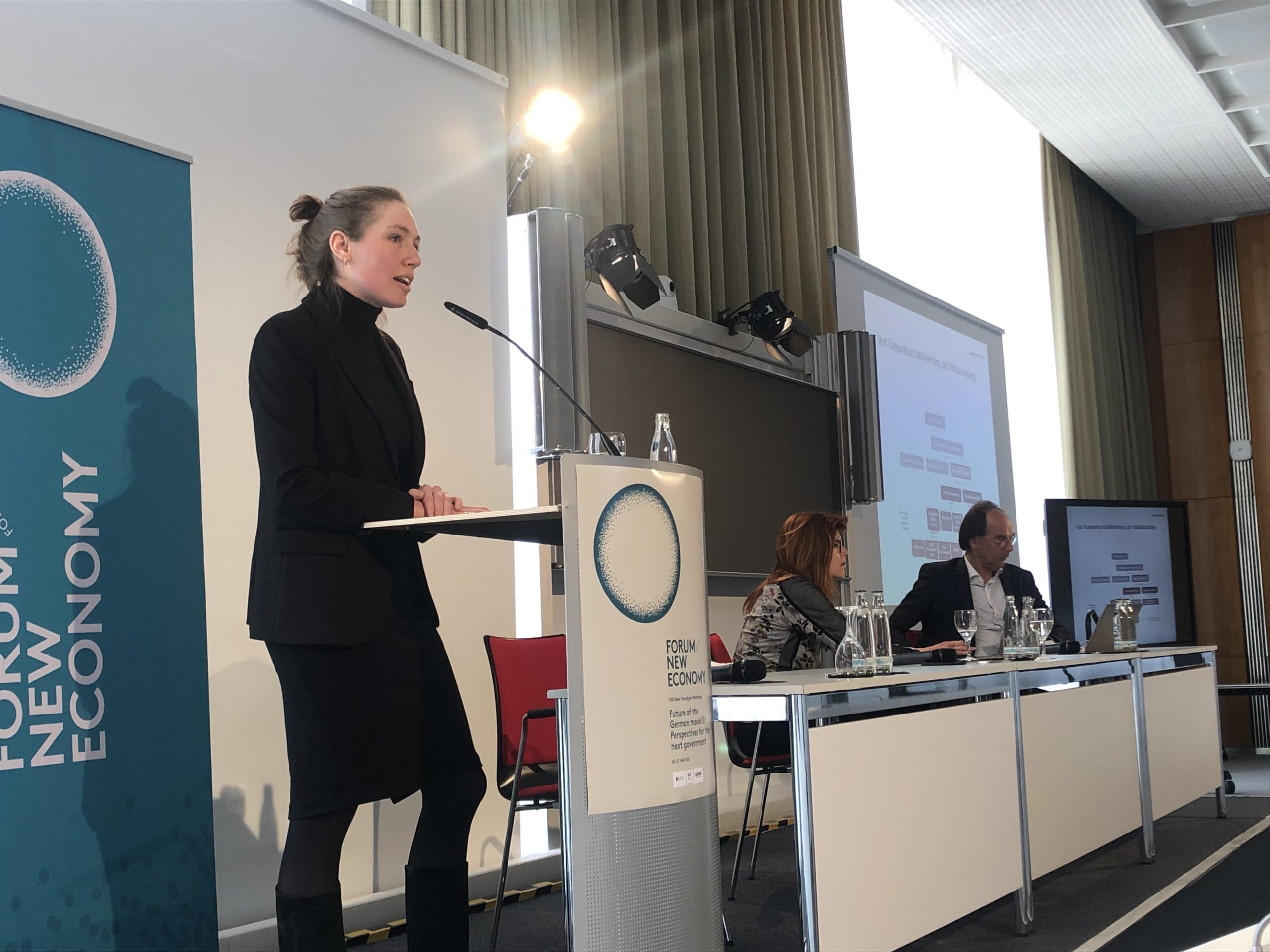THE STATE
A new German fiscal policy framework
In view of high levels of Corona debt, dealing with the German debt brake has become one of the hotly debated election campaign issues. A new study shows what German fiscal policy beyond the current debt rules could look like.
BY
DAVID KÄFFLINGPUBLISHED
14. JUNE 2021READING TIME
2 MIN.
The old paradigm
For decades, German fiscal policy was shaped by the idea that the sustainability of public finances should be measured by the debt to GDP ratio; the debt ratio, in turn, was best controlled by the annual budget deficit. This approach found its way into the German constitution in 2009 with the introduction of the debt brake.
Current state of research
However, recent research has elaborated that the “austerity paradigm” leads to suboptimal outcomes in today’s context: In particular, it does not ensure long-term fiscal sustainability or external balance, nor does it contribute effectively to solving the challenges facing us today, especially decarbonization and demographic change. A growing recognition of this fact has led to a lively debate both in Germany and internationally on the future of fiscal rules, which is also playing an important role in the election campaign.
A New German Fiscal Policy
A new study commissioned and published as Forum New Economy Working Paper by collegues at the Dezernat Zukunft builds on this debate and takes it a step further by not taking the shortcomings of the current paradigm as starting point, but thinking from a positive objective towards new ideas for reform. It first provides an overview of the state of the debate on alternatives and reforms to the debt brake.
It then answers three closely related questions: What is the right objective for fiscal policy? What might an institutional framework look like to put this objective into practice? And what concrete, politically realistic reform options could move us in this direction?
In the process, the authors identify the sustained full utilization of the economy as a reasonable goal for fiscal policy. They propose a four-pronged framework and develop detailed suggestions for initial reform steps that could be used to implement this framework in Germany. It is proposed that the cyclical component of the debt brake, which is governed by ordinary law, be adjusted, which would make it possible to reform the debt brake without amending the Basic Law, which would entail higher hurdles. In addition, the proposal includes the introduction of an investment company for municipal investments, as well as the introduction of an early warning indicator for interest costs.
The full study is now publicly available as a Forum New Economy Working Paper. The study was first presented at our VIII. New Paradigm Workshop presented in Berlin at the end of May 2021.

